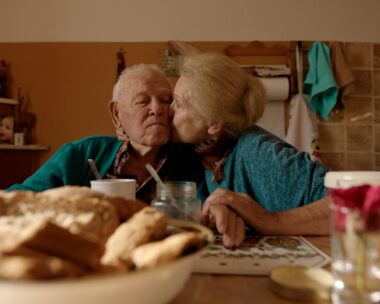Almost half a million Australians are impacted by dementia. This number is estimated to double over the next four decades. Dementia is the umbrella term for loss of memory, language, problem-solving and other thinking abilities, and it usually happens with age related brain degeneration. It is the leading cause of disease burden for those aged 65 and older. And it’s one of the cruellest diseases out there.
Like most medical conditions, catching the early signs of dementia helps to manage the condition better, and slow down its progression.
What are the early signs of dementia?
An early diagnosis for dementia can prove difficult as they can be subtle, according to Dementia Australia CEO Maree McCabe AM. But memory loss is usually the first giveaway.
Common early signs of dementia include:
- Memory loss.
- Changes in planning and problem-solving abilities.
- Difficulty completing everyday tasks.
- Confusion about time or place.
- Trouble understanding what we see (objects, people) and distances, depth and space in our surroundings.
- Difficulty with speech, writing or comprehension.
- Misplacing things and losing the ability to retrace steps.
- Decreased or poor judgement.
- Withdrawal from work or social activities.
- Changes in mood and personality.

What are the stages of dementia?
While the features of dementia are often classified into three stages, it’s important to note that these phases will not present the same in each person.
“People with dementia differ in the patterns of problems they have, and the speed with which their abilities deteriorate,” says Maree. “A person with dementia’s abilities may change from day to day, or even within the same day. What is certain though is that the person’s abilities will deteriorate; this may happen rapidly in a period of a few months or slowly over a number of years.”
Early Dementia
The early signs of dementia can be easy to miss, and often put down to old age. “Often this phase is only apparent in hindsight,” Maree says. “The onset of dementia is usually very gradual and it is often impossible to identify the exact time it began.”
A person with early stage dementia may:
Appear more apathetic, with less sparkle.
- Lose interest in hobbies and activities.
- Be unwilling to try new things.
- Be unable to adapt to change.
- Show poor judgement and make poor decisions.
- Be slower to grasp complex ideas and take longer with routine jobs.
- Blame others for “stealing” lost items.
- Become more self-centred and less concerned with others and their feelings.
- Become more forgetful of details of recent events.
- Be more likely to repeat themselves or lose the thread of their conversation.
- Be more irritable or upset if they fail at something.
- Have difficulty handling money.
Moderate Dementia
“At this stage the problems are more apparent and disabling. The person may:
- Be more forgetful of recent events. Memory for the distant past generally seems better, but some details may be forgotten or confused.
- Be confused regarding time and place.
- Become lost if away from familiar surroundings.
- Forget names of family or friends, or confuse one family member with another.
- Forget saucepans and kettles on the stove. May leave gas unlit.
- Wander around streets, perhaps at night, sometimes becoming lost.
- Behave inappropriately, for example going outdoors in nightwear.
- See or hear things that are not there.
- Become very repetitive.
- Be neglectful of hygiene or eating.
- Become angry, upset or distressed through frustration.
Advanced Dementia
“At this third and final stage, the person is severely disabled and needs total care. The person may:
- Be unable to remember occurrences for even a few minutes, for instance forgetting that they have just had a meal
- Lose their ability to understand or use speech
- Be incontinent
- Show no recognition of friends and family
- Need help with eating, washing, bathing, toileting and dressing
- Fail to recognise everyday objects
- Be disturbed at night
- Be restless, perhaps looking for a long-dead relative
- Be aggressive, especially when feeling threatened or closed in
- Have difficulty walking, eventually perhaps becoming confined to a wheelchair
- Have uncontrolled movements
- Have permanent immobility, and in the final weeks or months the person will be bedridden.

How is dementia diagnosed?
Dementia-like symptoms overlap with symptoms of other conditions, such as strokes, depression, alcoholism, infections, hormone disorders, nutritional deficiencies and brain tumours, says Maree. Many of these conditions can be treated.
“Consulting a doctor to obtain a diagnosis is critical at an early stage,” Maree adds. “A complete medical and psychological assessment may identify a treatable condition and ensure that it is treated correctly, or confirm the presence of dementia and then ensure assistance is provided.”
Such an assessment might include the following:
- A detailed medical history.
- A thorough physical and neurological examination.
- Laboratory tests including a variety of blood and urine tests called a “dementia screen” to test for a variety of possible illnesses which could be responsible for the symptoms.
- Neuropsychological testing.
- Other specialised tests such as a chest x-ray, ECG, or CT scan.
- A mental status test to check the range of intellectual functions affected by the dementia such as memory, the ability to read, write and calculate.
- Psychiatric assessment to identify treatable disorders which can mimic dementia, such as depression.

How to reduce the risk of dementia
There are certain health conditions that may increase your risk of developing dementia. These include high blood pressure or cholesterol, type 2 diabetes, and obesity, according to Maree.
“Scientific research suggests that changing certain health and lifestyle habits may make a big difference to reducing or delaying your risk of developing dementia – and it’s never too early or too late to start,” says Maree.
“Your risk of developing dementia may decrease if you look after your physical fitness and health. Physical activity increases blood flow to the brain, stimulates the growth of brain cells and the connections between them, and is associated with larger brain volume. Diet, sleep patterns, hearing and head protection are also factors for good body health.”
This week is Dementia Action Week. It is a national awareness-raising campaign that challenges misconceptions about dementia. The theme ‘Act Now for a Dementia-Friendly Future’ emphasises the importance of building awareness and acceptance of dementia in the community, as per the Australian Government.



